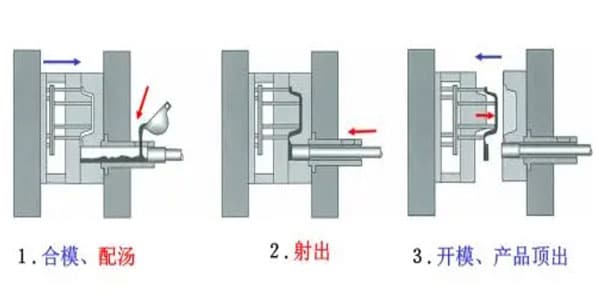The Greatest Guide To Alcast Company
Alcast Company for Dummies
Table of ContentsThe 7-Minute Rule for Alcast CompanyThe Best Guide To Alcast CompanyLittle Known Facts About Alcast Company.Alcast Company Fundamentals ExplainedAll About Alcast CompanySee This Report about Alcast Company
The subtle difference hinges on the chemical content. Chemical Comparison of Cast Light weight aluminum Alloys Silicon advertises castability by lowering the alloy's melting temperature level and boosting fluidness during spreading. It plays an important duty in permitting elaborate molds to be filled accurately. Furthermore, silicon adds to the alloy's toughness and put on resistance, making it important in applications where resilience is vital, such as vehicle components and engine elements.It also boosts the machinability of the alloy, making it easier to refine into completed items. In this means, iron contributes to the general workability of aluminum alloys.
Manganese adds to the stamina of light weight aluminum alloys and boosts workability. Magnesium is a lightweight element that provides toughness and influence resistance to aluminum alloys.
Unknown Facts About Alcast Company
Zinc improves the castability of light weight aluminum alloys and helps manage the solidification process during spreading. It enhances the alloy's toughness and hardness.

The main thermal conductivity, tensile stamina, yield strength, and elongation differ. Select appropriate resources according to the efficiency of the target item generated. Amongst the above alloys, A356 has the greatest thermal conductivity, and A380 and ADC12 have the most affordable. The tensile limit is the contrary. A360 has the very best yield toughness and the highest prolongation rate.
Alcast Company Can Be Fun For Anyone

In precision spreading, 6063 is fit for applications where detailed geometries and top notch surface coatings are vital. Instances include telecommunication rooms, where the alloy's exceptional formability permits sleek and visually pleasing layouts while maintaining structural integrity. In a similar way, in the Lights Solutions market, precision-cast 6063 elements develop stylish and efficient lighting components that call for elaborate shapes and good thermal performance.
The A360 displays remarkable prolongation, making it ideal for complicated and thin-walled components. In accuracy spreading applications, A360 is well-suited for markets such as Consumer Electronic Devices, Telecommunication, and Power Tools.
Not known Details About Alcast Company
Its special residential or commercial properties make A360 a useful selection for precision spreading in these sectors, boosting product durability and quality. aluminum casting company. Aluminum alloy 380, or A380, is an extensively used spreading alloy with several unique attributes.
In precision casting, aluminum 413 radiates in the Consumer Electronic Devices and Power Tools industries. It's commonly used to craft intricate elements like smartphone real estates, electronic camera bodies, and power device coverings. Its accuracy is exceptional, with tight tolerances up to 0.01 mm, ensuring remarkable item setting up. This alloy's remarkable rust resistance makes it an outstanding option for outside applications, ensuring durable, long lasting items in the discussed sectors.
The Definitive Guide for Alcast Company
Once you have determined that the light weight aluminum die casting procedure appropriates for your job, a vital following action is making a decision on the most appropriate alloy. The aluminum alloy you select will considerably influence both the casting procedure and the homes of the final product. Due to the fact that of this, you should make your decision meticulously and take an educated technique.
Establishing the most appropriate light weight aluminum alloy for your application will mean considering a vast array of features. The initial classification addresses alloy features that impact the manufacturing procedure.
Getting My Alcast Company To Work
The alloy you pick for die spreading directly impacts several facets of the spreading procedure, like exactly how very easy the alloy is to function with and if it is prone to casting flaws. Hot splitting, likewise called solidification fracturing, is a common die spreading defect for light weight aluminum alloys that can result in internal or surface-level tears or splits.
Specific light weight aluminum alloys are much more vulnerable to warm cracking than others, and your choice ought to consider this. An additional common flaw found in the die spreading of light weight aluminum is die soldering, which is when the cast adheres to the die wall surfaces and makes ejection difficult. It can damage both the actors and the die, so you should try to find alloys with high anti-soldering buildings.
Deterioration resistance, which is currently a noteworthy advice feature of aluminum, can vary significantly from alloy to alloy and is an important particular to take into consideration relying on the ecological problems your item will be subjected to (Casting Foundry). Wear resistance is another building generally sought in aluminum products and can differentiate some alloys